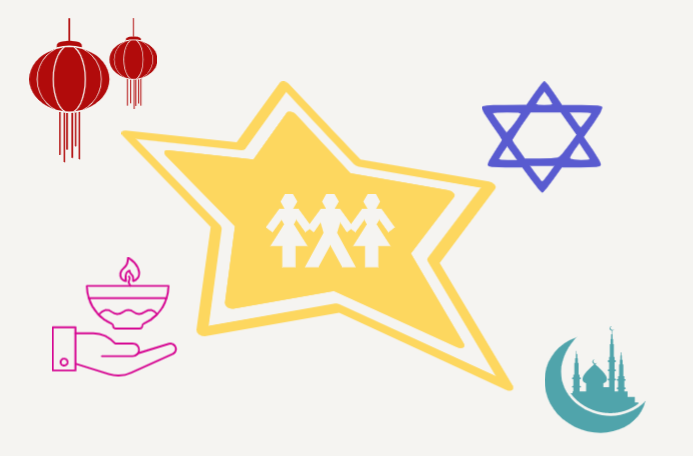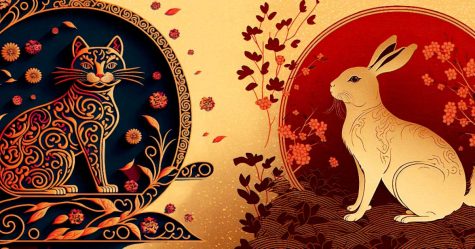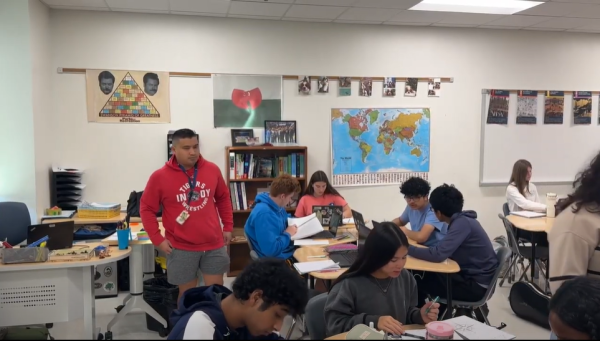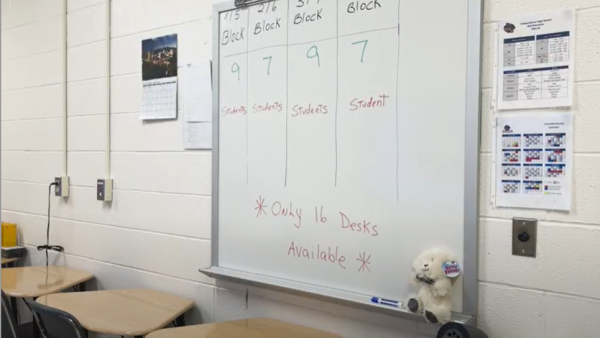Celebrating cultural diversity: An overview of cultural holidays added to the LCPS academic calendar
For the 2021-2022 school year, Loudoun County Public Schools (LCPS) added numerous holidays–Yom Kippur, Diwali, Lunar New Year (approaching this coming Tuesday) and Eid al-Fitr–in respect of students and staff who celebrate those cultural holidays outside traditional American ones, such as Christmas or Thanksgiving. Approaching this past holiday season, many students were pleasantly surprised at the new days off–absent in previous years. Many students, though, are not sure of the significance of these holidays.
Currently, many students at Independence struggle to recall even the names of these holidays, as well as which specific culture celebrates them. When asked to name the Jewish, Indian and Asian holidays added to the list of student-staff holidays, many students were unable to remember the names of surprisingly, holidays that had already passed: Yom Kippur (9/16) and Diwali (11/4), as well as Lunar New Year coming up on Feb. 1, extending the long weekend following a teacher work-day. The students who were able to name a holiday typically had trouble giving a brief description of the cultural significance and the traditions that take place during the holiday.
The holidays newly added to the list are: Yom Kippur on Sept. 16, Diwali on Nov. 4th, Lunar New Year on Feb. 1, and Eid al-Fitr on May 3. The holidays were added to the 2021-2022 academic year calendar on Dec. 1 of 2020 in a 7-2 vote by the Loudoun County School Board.
In order to increase awareness of the significance behind each cultural holiday added to the LCPS calendar, descriptions of the holidays have been included in the preceding paragraphs:
The first holiday added to the 2021-2022 school year, Yom Kippur (in English, The Day of Atonement) is the most significant holiday in the Jewish faith. Yom Kippur marks the climax of the 10 days of awe, a period of introspection and repentance following Rosh Hashanah, the Jewish new year. Traditionally, Yom Kippur is the day in which God decides each person’s fate. For this reason, Jewish people are encouraged to make amends and repent for their sins. Yom Kippur is traditionally recognized with a 25 hour fast. In 2021, it started on the night of Sept. 15 and extended to the evening of Sept. 16.
Next up on Nov. 4 is Diwali. This year, Diwali took place from Nov. 2 to Nov. 6. Diwali marks the beginning of the fiscal year in India. The different Indian religions, such as Hinduism or Sikhism, have different purposes behind celebrating Diwali as it marks different events in each religion. For Hindus, Diwali is a celebration of the return of two major deities, as well as the downfall of a demon in Hinduism. Traditionally, those who celebrate will gather with family and enjoy fireworks. In addition, various oil lamps and lights are lit across the streets of India. The lights hold the celebratory significance of “good over evil.”
The first holiday of 2022 is Lunar New Year on Feb. 1. This holiday is celebrated by several countries in Asia, mainly those that have been historically influenced by China’s culture. Some countries that nationally recognize Lunar New Year as a holiday are China, Japan, Korea and Vietnam, among others. As one may have guessed upon inspecting the name, the Lunar New Year occurs according to the lunar calendar, which follows moon cycles that vary each year. Traditions largely vary by country and region, although the main traditions include hanging up red lanterns, setting off firecrackers, exchanging red envelopes and gathering with family and friends. The origin behind red lanterns and firecrackers is that they are meant to ward off the fierce, menacing dragon, called “Nian.” Furthermore, in China, the color red is associated with luck, fortune and warding off bad spirits.
Last is Eid al-Fitr on May 3. Eid al-Fitr commemorates the last day of Ramadan, the fasting month, in the Islamic faith. It begins on the first day of the tenth month on the Islamic lunar calendar–Shawwal. Eid al-Fitr is one of the only Islamic holidays celebrated by all Muslims in the Islamic faith. Ramadan is a month of observance for Muslims, and fasting occurs so that they may better appreciate all that they have. On Eid al-Fitr, Muslims gather for prayer in the morning and celebrate with feasts throughout the day.
It is important to know these new holidays not only because we get to stay home thanks to them, but more importantly because being part of a community means understanding and celebrating the diversity surrounding us. We do not necessarily need to celebrate these holidays ourselves to appreciate the breadth of cultural difference that exists in our school. If there is a holiday of the ones listed above that you do not celebrate, see if you can find a peer who does celebrate it and ask them about the holiday–you may be surprised as to what you may learn about the colorful spectrum of diversity we house here at Independence.

Michelle is currently a Senior, where it is her third and final year writing for The Prowl. This year, she is excited to serve as the Co-Editor-in-Chief....











